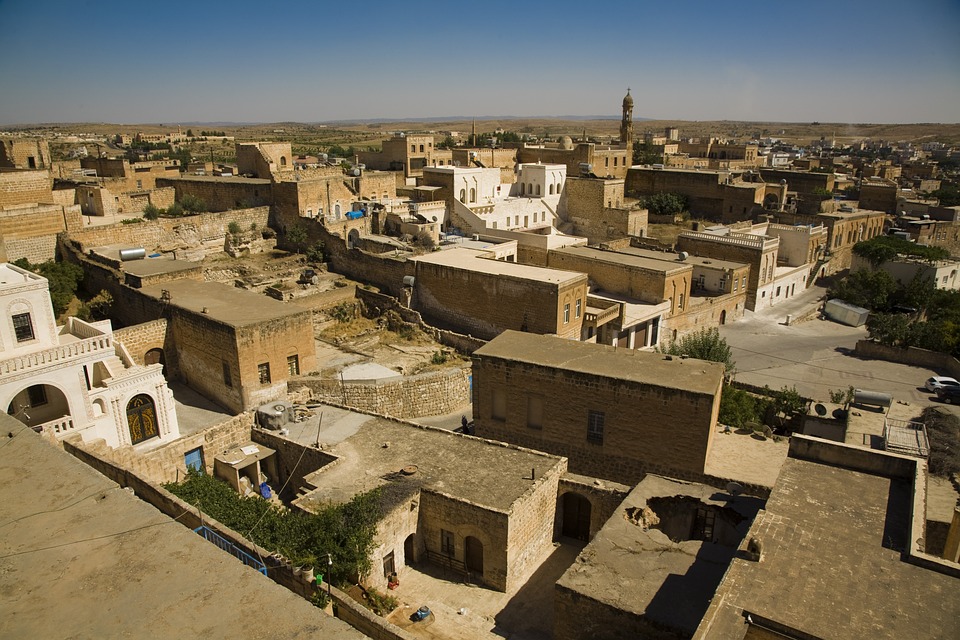Many different empires had ruled over Midyat including the Mitannians, Assyrians, Arameans, Armenians, Medes, Persians, Greeks, Romans, Byzantines, Abbasids, Seljuks and Ottomans. Below the town exists an underground city named Matiate, which is assumed to have been in use for about 1900 years and at its peak been inhabited by up to 70’000 people.
The leading Syriac Orthodox family, the Safars, were highly placed in the Deksuri confederation, while other local Syriacs were aligned with the opposing, anti-government Heverkan confederation.
In mid-1915, Christians in Midyat considered resistance after hearing about massacres elsewhere, but the local Syriac Orthodox community initially refused to support this. Hanne Safar Pasha was persuaded to break with other Christian leaders who wanted to organize an uprising in Midyat. Shortly thereafter, Safar was killed after all male members of the pacifist Protestant Hermez family.
In late June, kaymakam Nuri Bey disappeared, likely executed by Mehmed Reshid after refusing to massacre local Christians. On 21 June, 100 men (mostly Armenians and Protestants) were arrested, tortured for confessions implicating others, and executed outside the city; this panicked the Syriac Orthodox.
Local people refused to hand over their arms, attacked government offices, and cut telegraph lines; local Arab and Kurdish tribes were recruited to attack the Christians. The town was pacified in early August after weeks of bloody urban warfare which killed hundreds of Christians. Survivors fled east to the more-defensible Iwardo, which held out successfully with the food aid of local Yazidis.



